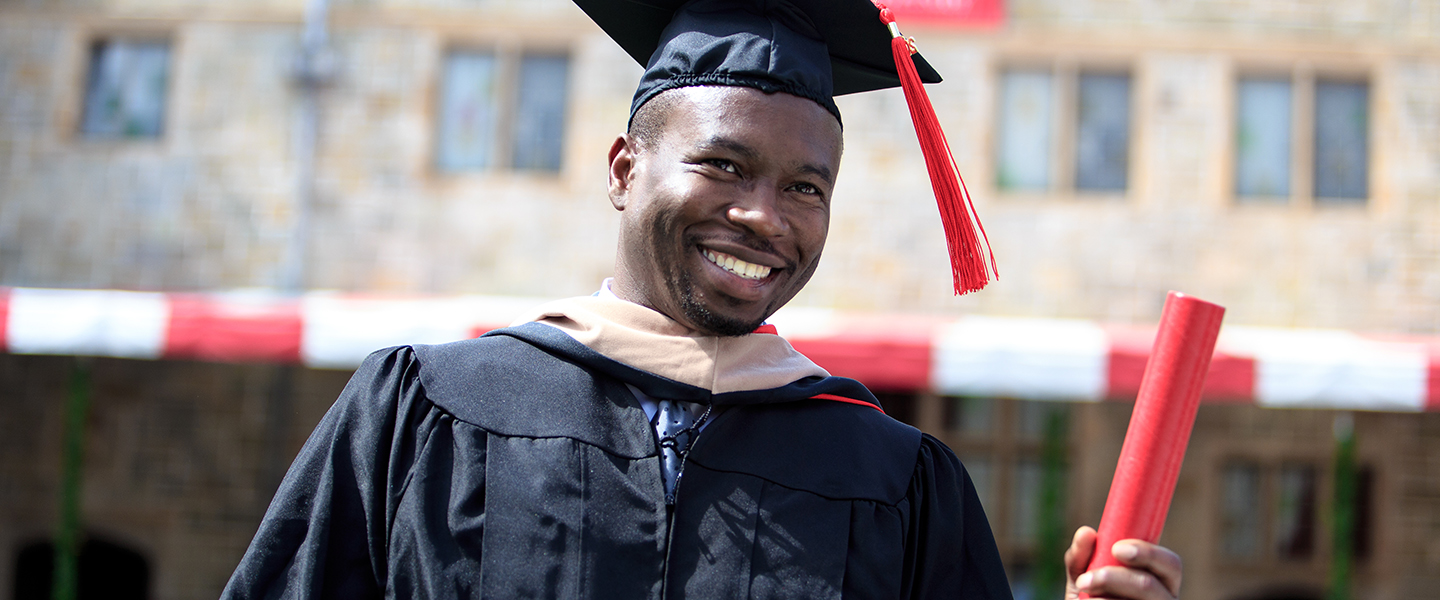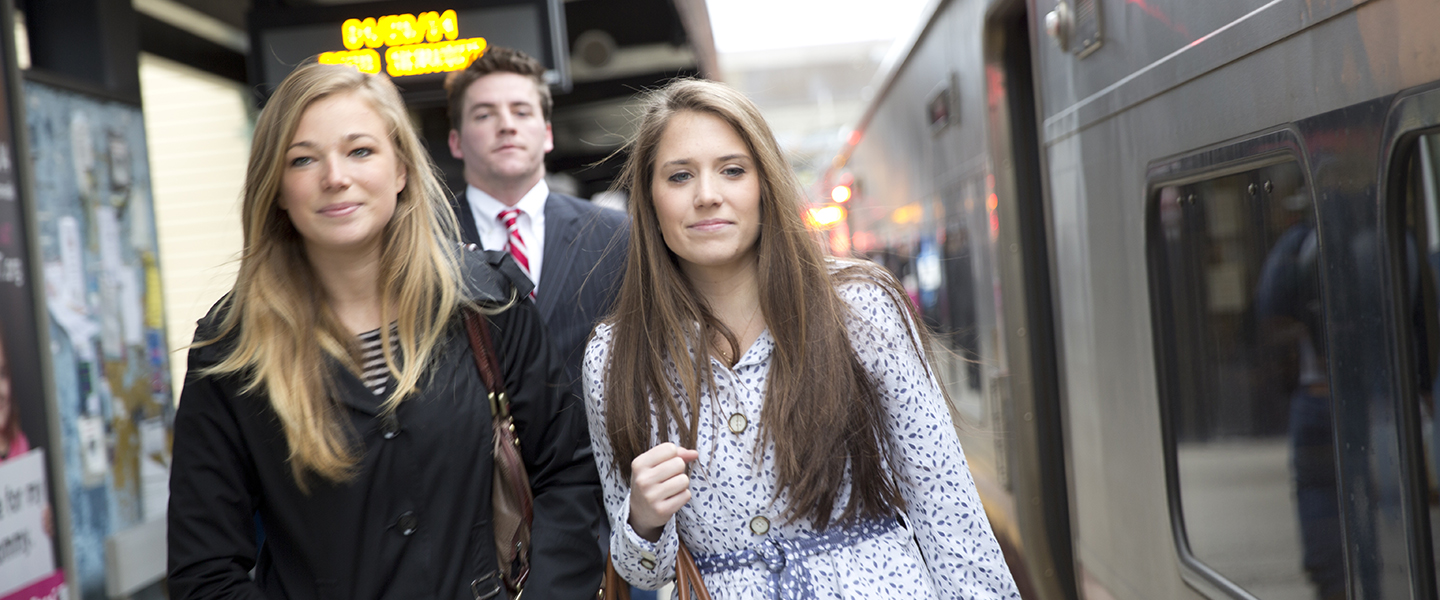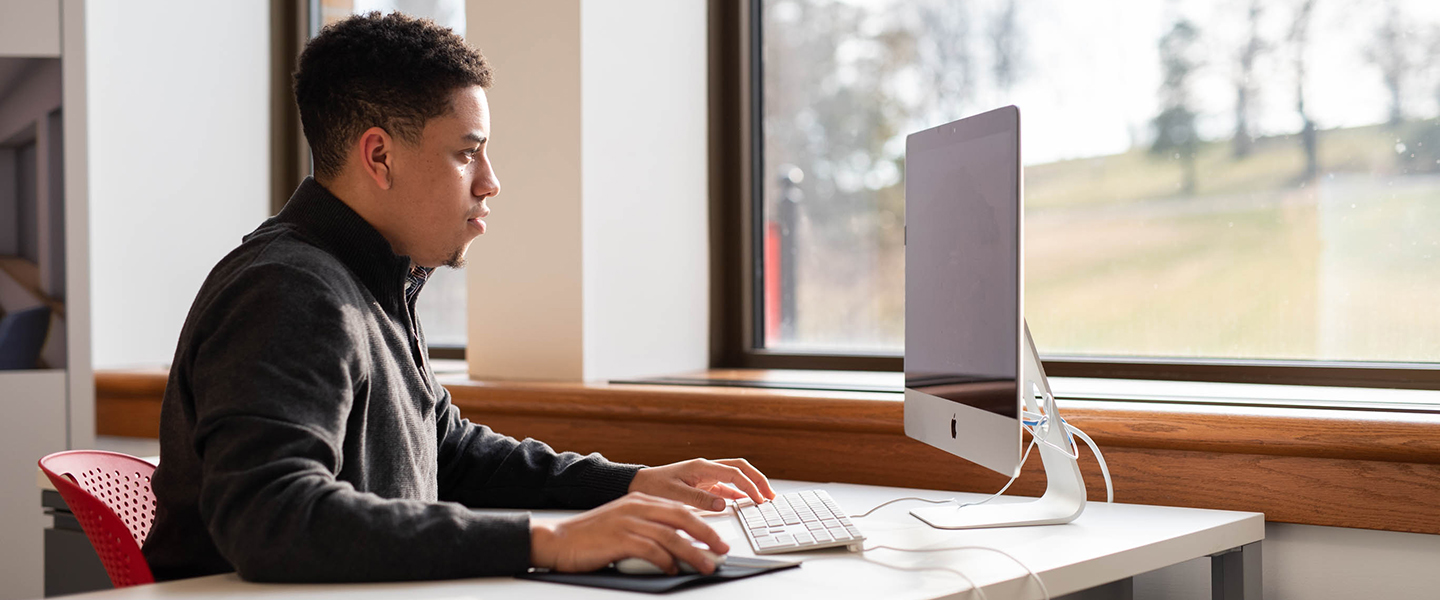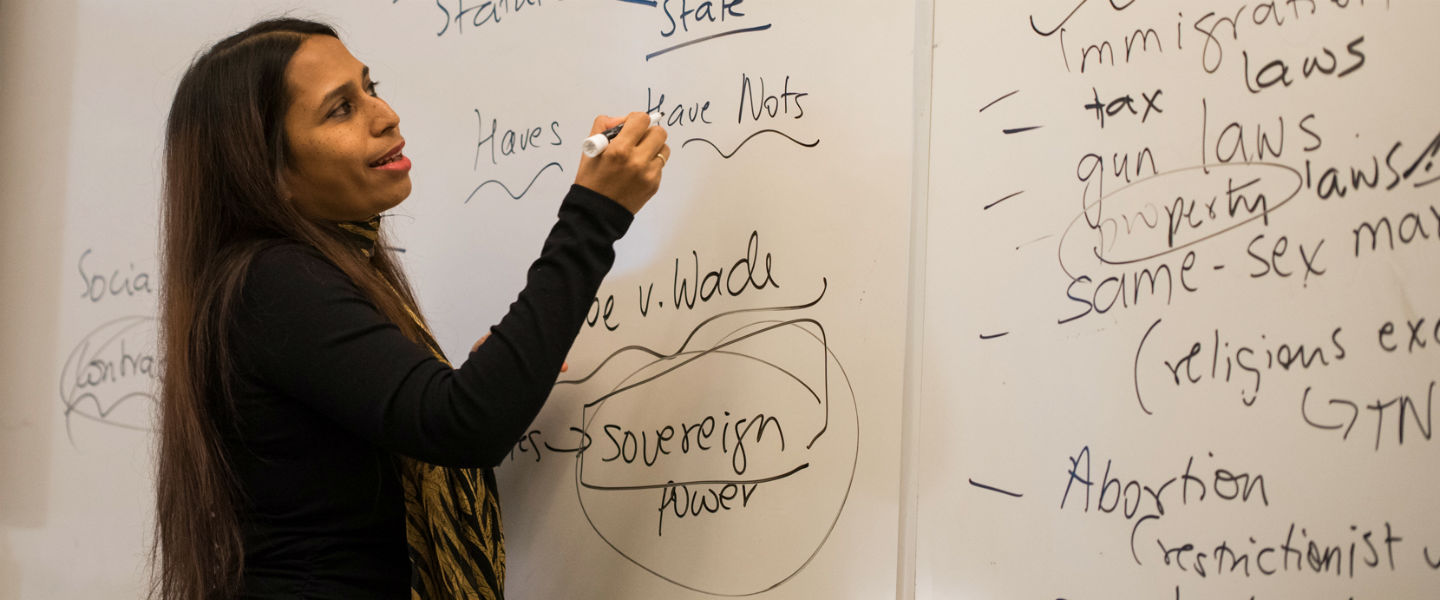On This Page
Program Overview
The Department of Politics offers a stimulating and cutting-edge curriculum that engages students with critical economic, security, environmental, and social policy debates; campaigns and elections; Congress and the presidency; democracy; authoritarianism; terrorism; humanitarian action; border politics; gender; class; race; and many other issues. The program prepares students to make a difference through leadership and civic engagement in a wide array of professions and teaches them the necessary skills to find solutions to the important challenges facing governments, international organizations, and communities at home and around the world. Through the study of politics, students gain skill sets and critical thinking abilities that prepare them for a wide array of careers in advocacy, business, consulting, government, international organizations, law, media, non-profits, and teaching, as well as graduate and professional degree programs in many fields.
The politics curriculum covers the discipline with foundational and elective courses in American politics, international relations, comparative politics, and political theory. If they choose, students can organize their electives thematically under topics such as globalization and inequality, law and justice, and power and political action to support their interests and career goals. Majors complete their politics degree with a culminating seminar in which they work closely with a faculty member.
In its entirety, the curriculum of the department is designed to achieve the following student learning outcomes: (1) understand fundamental political science terms, concepts and major theoretical frameworks; (2) demonstrate familiarity with core political institutions, governing systems, and their operation; (3) critically apply theories and concepts; and (4) utilize primary and secondary source material to support arguments and/or conduct research.
Politics students enjoy many opportunities to engage in professional development and broaden their horizons through experiential learning. This includes a wide variety of internship options as well as courses that involve service-learning, visits by and to government officials, inclusive classroom discussions and debates, and opportunities to acquire skills, master new research methods, gain practical knowledge, and build expertise in public policy, campaigns, public administration, humanitarian and disaster response, and other issues.
Politics Program at Fairfield University
Contact Us
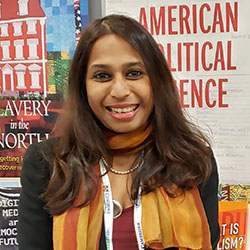
Gwendoline Alphonso
Office of Undergraduate Admission
P: (203) 254-4100
F: (203) 254-4199
admis@fairfield.edu
Requirements & Curriculum
Required Courses
| Introduction to American Politics |
| Introduction to Comparative Politics |
| Introduction to Political Ideas That Shape the World |
| Introduction to International Relations |
| One (1) 2000-level American Politics course |
| One (1) 2000-level Comparative course |
| One (1) 2000-level International Relations course |
| One (1) 2000-level Political Theory course |
| One (1) Culminating Experience Course (4000-level Politics course) |
| One (1) Professional Development Course |
| Three (3) Foundational courses |
| Three (3) Politics elective courses |
| Three (3) Foundational courses |
| Two (2) Politics elective courses |
| Three (3) Foundational courses |
| Two (2) Communication, Economics, English, Marketing, Public Administration, or Politics elective courses (selected from different departments) |
| Four (4) Foundational courses |
| Two (2) Politics elective courses |
A detailed list of course requirements, offerings, and more can be viewed in the University’s course catalog.
Honor Society
Pi Sigma Alpha, the National Political Science Honor Society, is the only honor society for college students of political science and government in the United States. It is open to graduate and upper-level undergraduate students in political science who have achieved the required level of academic excellence, and its mission is to stimulate scholarship and intelligent interest in political science.
Stag Spotlight
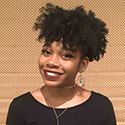
Sydney Williams
Class of '19
Undergrad Degree: Politics; International Studies
Hometown: Spring, Texas
Extracurricular Activities: Magis Scholar, Vice President of Pi Sigma Alpha, Founder and President of Fairfield University’s Black Student Union, Editor for the Fairfield Undergraduate Journal of Global Citizenship, Division I Volleyball Player, Pre-Law Society, International Business/Studies Club Secretary
Why did you choose to attend Fairfield University?
I chose Fairfield University because it felt like an environment that I would thrive in. As a student-athlete, I was recruited for volleyball, but from the moment I had my first visit, I could not imagine myself attending any other university. From the ideal, movie-like campus to the many opportunities I was encouraged to pursue, it just felt like the right fit. Being from Texas, Fairfield, Connecticut was very much out of my comfort zone, but I loved the challenge that being so far from home presented. I was extremely intrigued by the idea of venturing out to see what the East Coast had to offer and developing intellectually.
Describe a project/s done through the politics program or under the supervision of/ in collaboration with politics faculty that you are particularly proud of:
One project that I am extremely proud was in collaboration with Dr. Janie Leatherman for her PO 390 International Human Rights course. It was a class dedicated to the assessment of fundamental human rights principles and institutions in an international context. In this service-learning course, I was introduced to the origins, maturation, and enforcement of international human rights laws and policies. In learning about the procedures used by the international institutions and NGOs to combat human rights violations, I was educated about the dimensions of the international human rights regimes through their advocacy work for Scholars at Risk.
We studied the case of Professor Bekele Gerba, a professor of foreign languages at the University of Addis Ababa and nonviolent activist. When he was arrested, Professor Gerba held the position of First Secretary General of the Oromo Federalist Congress (OFC), an Ethiopian political party. Along with my classmates, I prepared an advocacy report for his case that later helped Scholars at Risk in their work to globally raise awareness about Gerba’s case, ensure the protection of his human rights, and see-through to his release.
My classmates and I planned a week of events both on and off campus to advocate for Professor Gerba at the United Nations and on Capitol Hill. Throughout the semester, we were in constant communication with various Ethiopian civil rights activists, political leaders, and Dr. Gerba’s family members to get updates on his case and the current state of the tensions between the Oromo and Tigrayan people. After word of our advocacy had reached the greater Fairfield community, we were interviewed by local news sources here in Connecticut, and even some international news outlets which allowed us to further raise awareness about Dr. Gerba’s case.
What attributes regarding the faculty did you find particularly helpful/encouraging?
I was immediately drawn to the department because I admired how much the professors made it a point to build a relationship with their students and see them through to success.
I will never forget my first politics class with Dr. Marcie Patton. It was by far the most intense and challenging academic environment I had ever been in, but it was also one of the most rewarding because I was able to see what I was capable of achieving at Fairfield and beyond. As a politics undergraduate, my thinking is constantly challenged, and I am forced to look at topics in a way that I would not otherwise.

Nadra Al-Hamwy
Class of '18
The Gambia Intern
Undergraduate Degree: Politics, International Studies
Hometown: Monroe, Connecticut
Extracurricular Activities: Resident Assistant (Service 4 Justice Residential College), New Student Leader, Pi Sigma Alpha (National Political Science Honor Society), Alpha Sigma Nu (National Jesuit Honor Society), Sigma Iota Rho (International Studies Honor Society), Phi Betta Kappa (Academic Honor Society), International Studies/Business Club, Bellarmine Museum of Art, Class Senator (FUSA).
"I wish you could enter my brain and see what I experienced at this moment; tons and tons of men standing next to each other, in synchronized motion of prayer, all going down and up together, absolute silence or the echoing effect of hundreds of people saying "Allah Abakar" or "Ameen." And oh my goodness, all the colors and patterns of everyone's new Koriteh outfits. Truly mesmerizing."
– Nadra Al-Hamway '18 about her internship in The Gambia
Why did you choose to attend Fairfield University?
I chose Fairfield University for a variety of reasons. When I toured the campus during my senior year of high school, I fell in love with the homey, community feel of Fairfield. I liked the fact that students would be able to have close relationships with their professors because of the small class sizes. I knew that through my faculty, staff, and peers, I would be supported and pushed to grow both personally and professionally through an endless amount of opportunities and experiences.
Describe a project/s done through the politics program or under the supervision of/ in collaboration with politics faculty that you are particularly proud of:
Looking back, the highlight of my Politics education at Fairfield University definitely has to be my internship at the Connecticut Institute for Refugees and Immigrants (CIRI), formerly known as the International Institute of Connecticut (IICONN). CIRI is a statewide nonprofit human services agency that provides services to new immigrants and refugees in Connecticut to help them become self-sufficient, integrated, and contributing members of the community. I collaborated with Professor Edith Cassidy of the Politics Department to secure a position working in the Refugee Replacement & Resettlement branch of the NGO from January to May 2017 in Bridgeport, Connecticut. I've gained life-long friendships through this particular experience and it galvanized my desire to devote my career to humanitarian causes and efforts.
What attributes regarding the faculty did you find particularly helpful/encouraging?
Fairfield University’s Politics faculty is the absolute best. They are SO remarkably knowledgeable, caring, understanding, patient, and engaging. They truly care about the well-being of their students, meaning they really take the time to get to know us inside and outside the classroom. They want to know about our backgrounds, passions, areas of interests, and goals for the future. They encourage us to be curious, think outside the box, question things and be skeptical of the things we unconsciously accept. They challenge us to explore (or think critically about) different perspectives, biases, and paradigms. The topics we explore in the classroom are always timely, relevant, and important. Whether it was in my Intro to Political Theory class, Islam and Muslim Politics course, or even International Environmental Policy seminar, my professors always prompted me to acknowledge and critically think about the impact of politics on the lives of real people. I always felt comfortable asking questions and contributing my thoughts during a class discussion. I'm proud and fulfilled with the education and skills that I have received from my Politics faculty family. Because of their support, I know I will succeed in whichever path I choose to pursue after graduation.
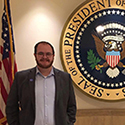
Richard Burke
Class of '17
Undergrad Degree: Politics
Hometown: Rockaway Park, NY
Extracurricular Activities: Paper presentations at the Western Political Science Association, Northeastern Political Science Associations, Lawrence Scholars Program, Pi Sigma Alpha Conference, Phi Beta Kappa, Alpha Sigma Nu National Jesuit Honors Society, Resident Assistant, New Student Leader.
Why did you choose to attend Fairfield University?
I chose Fairfield University because I noticed from the beginning that Fairfield’s faculty members were interested in working with students and were concerned with ensuring that every student had an enriching learning experience. This was my hope as a prospective student and has been confirmed over the course of my four years. This desire of the faculty to both know and work with their students has allowed me to develop my longstanding passion for politics in ways that I could not have imagined.
Describe a project/s done through the politics program or under the supervision of/ in collaboration with politics faculty that you are particularly proud of:
Since my sophomore year I have been working with Dr. Gwendoline Alphonso of the Politics Department on several research projects. My first project was a paper entitled, “From Godless Government to the Faith-Based State” which explored the role of religious and economic ideas in shaping George W. Bush’s Office of Faith-Based Initiatives. This paper was presented at the Western Political Science Association 2016 meeting in San Diego, California. My paper was then published by Critique: A Worldwide Student Journal of Politics which is listed with the American Political Science Association and housed at Illinois State University. Since this project, I continue to work on research projects with Dr. Alphonso. I have presented other research at the Northeastern Political Science Conference in Boston and at the Political Science Honors Society’s National Conferences. My research has received significant support and funding from the Lawrence Scholars and Corrigan Scholars program. These experiences were crucial to my acceptance at multiple doctoral programs in political science. Central to my success has been Dr. Alphonso’s patient and insightful mentorship that has allowed me to develop my own scholarly style and interests.
What attributes regarding the faculty did you find particularly helpful/encouraging?
Fairfield University’s Politics faculty remains committed to the “big questions” of the social sciences and this makes the discipline engaging and thought-provoking for an undergraduate. This is due to both the personal qualities and interests of the faculty, as well as the Jesuit mission of Fairfield University which has a strong commitment to social justice. The questions we discuss in the classroom are edifying not just from a scholarly perspective, but from a human perspective. In my experience, questions of justice, the social good, and the impact of politics on the lives of real people has never been excluded from the classroom. This emphasis combined with the faculty’s insistence on dialogue and group discussion has made the classroom a place of profound learning. For this reason, I am deeply satisfied with the education that I have received.

Olivia Tourgee
Class of '16
Undergrad Degree: History and Politics Major, Philosophy and Management Minor
Hometown: West Greenwich, RI
Extracurricular Activities: FUSA Class of 2016 President, Captain of the Fairfield University Equestrian Team, Women’s Club Soccer Goalkeeper
What attributes regarding the faculty did you find particularly helpful and encouraging?
I found the politics professors to stand out from other departments. They have all been incredibly intelligent in their fields and have real-life experience in the areas in which they are passionate. Moreover, the politics professors I have had have always been extremely personable and down-to-earth. This combination results in engaging, interesting, and educational classes that bring learning beyond the classroom doors. In addition, politics professors are always the most organized and clear with their expectations. The way in which they present information and repeat what is most important is also incredibly beneficial. I enjoy politics classes because of the professors’ teaching styles, which make the courses enjoyable and very educational.
Describe the ways that the university’s Jesuit mission and identity had a positive influence in your academic and personal experience while at Fairfield.
The Magis Jesuit value has really defined my experience at Fairfield University. Magis means "more" and in everything I do I try to fulfill that. For instance, I am always yearning and striving to do and accomplish more. Whether it is academically, socially, or with extracurricular activities, I try to do as much as I can. Giving more is a challenging process that is emotionally, mentally, and physically trying. Yet at the end of the day, the week, the month, the semester, and the year, I am thankful and proud that I decided to give more. Academically and personally, this Jesuit value has had a positive influence on my experience here at Fairfield University.
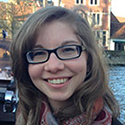
Enxhi Myslymi
Class of '15
Undergrad Degree: Double Major in Politics and English/Journalism
Hometown: Waterbury, CT Born: Tirana, Albania
Extracurricular Activities: Present paper at Western Political Science Association (WPSA); Hardiman Scholars Research Grant; Managing Editor of The Mirror; Study Abroad in Aix-en-Provence, France (Jan. 2014-May 2014); Alpha Sigma Nu National Jesuit Honor Society; Pi Sigma Alpha Politics Honor Society; Sigma Tau Delta English Honor Society; Alpha Mu Gamma Foreign Language Honor Society; Investigative Reporters and Editors (IRE) Member
Why did you choose to attend Fairfield University?
Fairfield University has everything and more for prospective students looking for a small, traditional, liberal arts university.
Describe a project/s done through the politics program or under the supervision of/ in collaboration with politics faculty that you are particularly proud of:
During my senior year, I have worked with two wonderful professors, Dr. Jocelyn Boryczka and Dr. Gwendoline Alphonso, on two separate research projects. With Dr. Boryczka I am writing a conference paper based on theories by Michel Foucault, supplemented by Sigmund Freud, Simone de Beauvoir and Cynthia Enloe to further feminist thought in the context of sex, gender and sexuality. I am using shaving culture in the U.S. to discuss social, political, and economic constructions placed on men and women that gender stereotypes. The paper will be presented on a panel with Dr. Boryczka at the Western Political Science Association conference.
With Dr. Alphonso, we are collaborating to highlight the role of the family in 21st century U.S. party politics. Our work also includes placing data analysis of family policy within theoretical frameworks of sectionalism, party polarization and the rightward turn in the late 20th century. We are aiming to submit the paper at Fairfield’s “Celebrating American Politics” conference on campus.
What attributes regarding the faculty did you find particularly helpful/encouraging?
One of Fairfield’s strengths is their academics and the Politics Department is the perfect example. The faculty is encouraging, dedicated and committed to their students, and I cannot count the number of times I have sat in my professors’ offices discussing my future – or just having a cup of coffee. Each faculty member takes an interest in students’ lives, and this fact is what sets Fairfield apart from other universities because the professors truly care about each student. I remember being a freshman in a politics course and being extremely concerned about developing a thesis for my paper, so I went to my professor’s office hours and went over the paper word for word. Politics professors at Fairfield really take the time to improve their students’ academic experiences, and at the end of my four years here, I can wholeheartedly say that the faculty has become a part of my family.
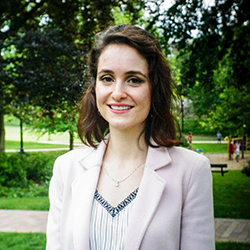
Klevisa Kovaci
Class of '14
Undergrad Degree in (plus any area of concentration): Bachelor of Arts in International Studies, French, and Politics
Hometown: Trumbull, CT
Extracurricular Activities: Research Assistant in the Politics Department, Teaching Assistant for French, Model United Nations, French Club, University Symphony Orchestra
Graduate School: Dual degree program at Columbia University (Master in International Affairs) and Sciences Po (Master in International Development)
Describe a project done through the program that you are particularly proud of:
One of the highlights of my college career was working as a Teaching Assistant of French in the Modern Languages and Literatures Department. I got the amazing chance to teach 1-3 weekly Oral Practice Session (OPS) classes of French each semester, under the direction of Professors of French: Dr. Joel Goldfield and Dr. Zoe Erotopoulos. Using the Rassias Method in my classes, I grew academically, professionally, and personally by strengthening my French and teaching skills. This job reinforced my appreciation for French, teaching, and working with young people.
I formed lasting friendships with my language teaching assistant colleagues, who were from many countries. I also learned so much from my students and the experience. In fact, thanks to my network in the French major, I later became an Assistant Teacher for the Rassias Language Program in France. By working as a language teaching assistant, I gained professional skills; a valuable network of mentors, colleagues, and friends; and new opportunities during and beyond Fairfield University.
What attributes regarding the faculty did you find particularly helpful/encouraging?
The faculty of the Modern Languages and Literatures Department is supportive of students in many ways, such as individual tutoring during office hours. One of my favorite aspects about the faculty is their work in supplementing academic courses with opportunities outside the class. For instance, the professors of French were immensely supportive of French Club and in encouraging students to attend Francophone-related events. Another experience that illustrates this is when the Alpha Mu Gamma faculty leaders took a group of students to attend the National Language Honors Society Convention in Chicago.
In the Modern Languages and Literatures Department, the energy and encouragement that faculty provide for students creates an enabling learning environment. From my experience as a student and assistant teacher in foreign language, I noticed a unique synergy, cooperation, and camaraderie between the professors of different languages. This served as a positive model for me and for other students. The department faculty and staff seem like a family, united by the goal of helping students to achieve their best in foreign language.
Describe a favorite course and how it helped your academic growth.
A course that stands out for me was “Francophone Cultures,” taught by Dr. Sourieau. This was an advanced level course in which students learned about cultures, histories, and populations of French-speaking countries outside of France. Dr. Sourieau utilized challenging and intriguing texts from different world regions. Before long, my classmates and I were discussing effects of colonialism and development in French-speaking countries. I found myself writing at my highest level and giving a 15 minute presentation on French territories, political systems, and economic growth.
This course is unique for its full integration of foreign language with history and social sciences. Foreign language is used in international cooperation and business. And in this class, I advanced my language skills while actively applying French in political, economic, and social deliberations of current issues of today.
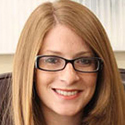
Jennifer Amdur
Class of '09
Undergrad Degree: BA in Politics. Minor in Psychology and Peace and Justice
Current Hometown: Fairfield, Connecticut
Name of Employer: The Berkowitz Law Firm LLC
Job title & brief description of duties: Attorney
I devote 100% of my practice to litigation. My primary area of practice is medical malpractice representing victims of medical negligence, abuse, and neglect. The clients whom I represent have serious, permanent and life-altering injuries for which I am involved in seeking appropriate damages and compensation. As a trial lawyer, I am consistently litigating for fair, equitable, and just compensation for those who have been injured by the negligence of another—either an individual, medical provider, or corporation. My daily job duties are constantly influx depending upon the needs of my clients, as I am involved in my clients’ cases from the first client meeting or phone call up through trial or alternative dispute resolution.
Why did you choose to attend Fairfield University?
I choose to attend Fairfield after a tour of the campus. I fell in love with the energy of the campus and the opportunity I saw in front of me. I also was drawn to the core curriculum as I felt it would prepare me for law school after graduation.
How did you select your major/minor? And how did that contribute to your professional/personal life?
I am a firm believer that politics are everywhere. My politics/political science degree encouraged me to see the world and its actions through the lens of the political world. In everyday life, personal and professional, politics is active and engaged. It is empowering, especially as an attorney, to understand the different political goals and interests of different agencies, opponents, and political systems. Further, politics interests me, thus, spending my time at Fairfield learning and searching for answers through the political lens was gratifying and invigorated me to continue to learn about current political motivations, policies, and practices.
How did you come to work in your current career field and what inspires you about your work?
I obtained a summer associate position during law school at a large firm which specialized in medical malpractice. I was instantly inspired with this area of practice, which at the time was completely foreign to me, as I truly felt I was helping and supporting individuals who were in need of an advocate and would otherwise be unable to assist themselves against the medical institutions. Additionally, many of the clients I work with need both legal support and social/emotional aid or support and it is always inspiring to help an individual obtain the assistance they so require. On a daily basis, I am also inspired by so many of my clients who have done so much in the face of debilitating adversity.
How did Fairfield’s Jesuit education prepare you for your future?
Fairfield University’s Jesuit ideal of “being men and women for others” is present in my daily life. As a social justice message for each person to find a career or an activity which is both personally and socially rewarding is a constant theme at Fairfield. I took that message and have applied it to my life in a variety of ways. Additionally, I was involved in a number of social justice extracurricular activities which were imperative to shaping my personal and professional opinions, activities, and my career choice. Lastly, I was actively involved in the extracurricular activities focused on women and women’s rights. My involvement led me to be the President of my Women’s Law Society and I have been actively involved in the Connecticut Trial Lawyer’s Women’s’ Caucus.
More About Politics
Life After Fairfield
Fairfield politics students join the workforce with the analytic and communication skills needed to meet the demands of today's job market and navigate it successfully. Our curriculum prepares students for careers in advocacy organizations, business, consulting, government, international organizations, law, media, non-profits groups, teaching, and other fields.
Our alumni often attend leading law schools or graduate programs in public policy, political science, public administration, business, and international affairs in the United States and abroad. Others go to work for members of Congress, leading businesses, government agencies, consulting or lobbying firms, and non-profit organizations. Some work for the Peace Corps, AmeriCorps, Teach for America, or the Jesuit Volunteer Corps. Some even run for elected office.
Learn how Fairfield's Career Services can support your post-graduate goals, and how our tight-knit alumni network can build career and mentoring opportunities that last a lifetime.
Diversity and Inclusive Excellence
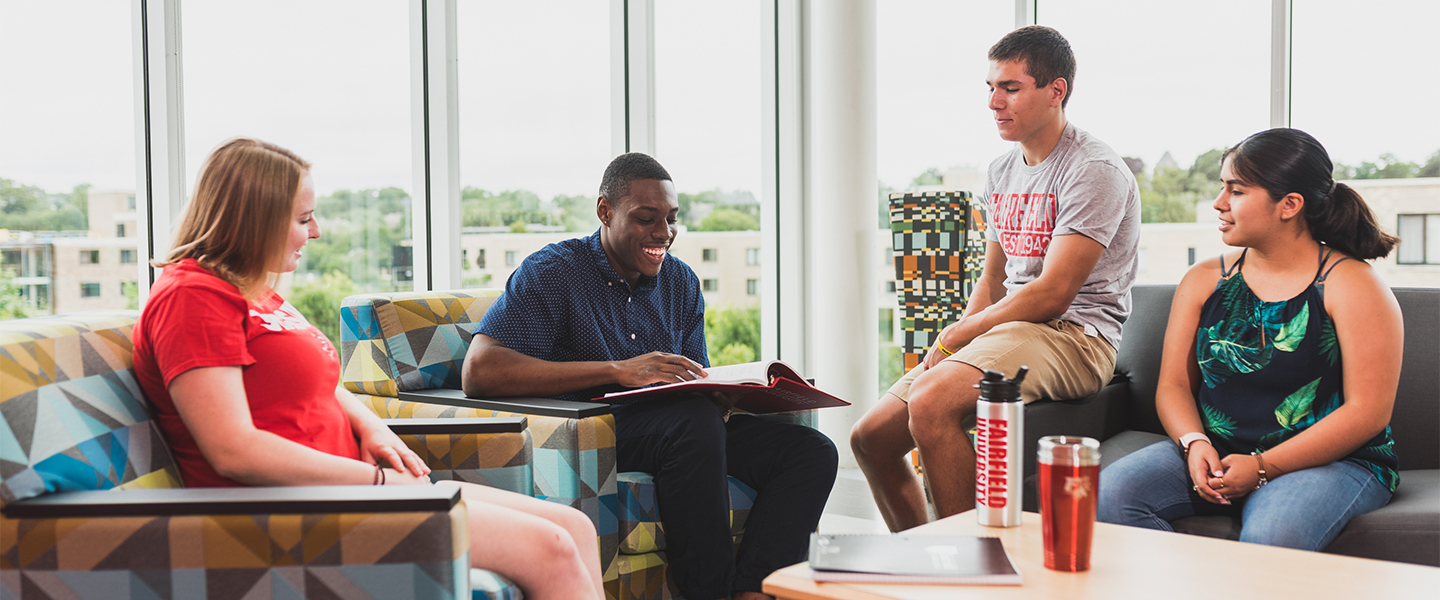
As a Jesuit, Catholic university, Fairfield is dedicated to diversity and inclusion; to radical hospitality in service of racial, social, and economic justice.
Internships & Study Abroad
Politics students can pursue several different types of off-campus study opportunities. These include leading study abroad programs, the Washington Institute, the Connecticut General Assembly Legislative Internship Program, and a variety of exciting internships offered through the Politics Department and the Fairfield University Career Center.
Study Abroad Programs
Fairfield University offers a large number of study abroad options around the world. A student can apply one approved study abroad course toward the Politics major or minor and the other courses toward the Magis core and other majors and minors. In addition, a number of politics majors have received Fulbright fellowships for research and study abroad.
Connecticut General Assembly Legislative Internship Program
The Connecticut General Assembly Legislative Internship Program offers students first-hand experience with the legislative process, training, academic discussions, and direct work with the legislator to whom the student is assigned. Students in this program enroll in POLI 3981 and apply this course toward the professional development requirement in the politics major or as an elective in the politics minor. If a student takes this course for six credit hours, the student counts three credits toward the politics major or minor and three credits toward general graduation credit.
Washington Internship Institute
The Washington Internship Institute (WII) offers semester-long and summer programs in Washington DC in which students work four days-a-week in an internship with a member of Congress, cabinet department, government agency, leading non-profit, or international organization. The program also includes a policy seminar and option for a research paper. Students attending the Washington Internship Institute apply one or two courses toward the politics major or minor. One course typically fulfills the professional development course requirement in the politics major and the second course typically counts as an elective in American politics or international relations, depending on the focus of the seminar taken in Washington. The remaining credits (usually six or nine) the student earns in the program count toward general graduation requirements.
Additional Internship Opportunities
Many Politics students take internships through the Politics Department. In recent years, students have interned with members of Congress; Connecticut state legislators; town mayors and other local office holders; government offices in Bridgeport, Fairfield, Hartford and other towns; candidates running for office; law firms; the local and state judiciaries; media companies; small and large businesses; many different types of local, national and international non-profit and advocacy organizations; and many different businesses. For more information on internship options, contact Internship Coordinator for the Politics Department, Edie Cassidy at ecassidy4@fairfield.edu, and the Fairfield Career Center.
Clubs & Organizations
Many politics students participate, and in many cases play leadership roles, in a wide variety of extra-curricular campus activities. Although the full list is vast, here is a representative sample of clubs, organizations, and other extra curricular activities our students have been involved with in recent years:
- Fairfield University Student Association (FUSA), the University’s student government association
- "Lets Talk Politics," the Politics Department speaker series
- "Across the Aisle," a student organized discussion forum
- College Democrats
- College Republicans
- Model United Nations
- Pre-Law Society
- Leaders for Environmental Action at Fairfield
- Lean In
- New Student Leaders
- The Mirror, Fairfield’s student newspaper
- WVOF, the student radio station
- Performing for Change
- Operation Smile
- Outdoors Club
- Random Acts of Kindness
- Colleges Against Cancer
- Relay for Life
- Economics Club
- Entrepreneurship Club
- Proactive Investment Club
- French Club, German Club, and Spanish Club
- International Business/Studies Club
- Stags Give Back
- Student United Way
- Students 4 Social Justice
- Fairfield Christian Fellowship
- Asian Students Association
- Spanish-American & Latino Student Association
- South Asian Student Association
- Division 1 Varsity Athletics
Awards
Awards
The Department of Politics presents two prestigious awards each year. Students receiving these honors participate in the annual College of Arts and Sciences Awards Ceremony and receive additional printed recognition in the Commencement Program, which is distributed during graduation.
- The Passarelli-Guinta Award for Excellence in Political Science is presented annually to the graduating senior who has achieved the highest academic performance in classes taken toward their politics major. Highest academic performance will be determined primarily by GPA and can include other criteria, such as: faculty-mentored research, presentations at academic conferences or research symposia, and other related criteria.
- The John Orman Award for Political Activism is presented annually to a graduating politics major who has combined outstanding academic performance with a demonstrated and productive commitment to political activism.
In addition to our departmental awards, politics students are also eligible for, and in many cases receive, University-wide awards, fellowships, and scholarships that are open to all Fairfield undergraduates. These include:
- The St. Ignatius Loyola Medal, which is given annually to a senior who has shown commitment to high academic standards and substantial involvement in community service and/or extracurricular activities.
- The William J. Kramer ’60 Humanitarian Award, which recognizes a senior who has shown a commitment to volunteerism and service to an external community activity that best exemplifies the Ignatian tradition of being men and women for and with others.
- Student Achievement Awards, which recognize seniors who have shown exceptional dedication to and enhancement of a specific Fairfield University program, activity, organization, or project.
- The Fairfield University Honors Program, which invites highly accomplished and motivated students, including eligible politics majors, to participate in an engaging and enriching series of special courses in which intensive academic activities are connected to meaningful experiential learning.
- The national Alpha Sigma Nu Honor Society, the Honor Society of Jesuit Colleges and Universities, which recognizes individual students who distinguish themselves in scholarship, loyalty and service.
- Phi Beta Kappa, the oldest and most widely recognized national academic honor society in the United States.
- The Bellarmine Scholars program, which provides a unique opportunity for Fairfield sophomores to study in Florence, Italy.
- Campus Sustainability Committee Grants, three of which are awarded each year to students and faculty who submit winning proposals for projects that will positively affect environmental and sustainability issues on campus.
- A large number of prestigious Student-Faculty Research Grants, including: The E. Gerald Corrigan Endowed Scholars Fund; Hardiman Scholars Fund; Lawrence Family Faculty Student Mentor Program; Mancini Family Faculty Student Research Fund; Kathleen McGuiness Mentorship Program; Emil and Daniel Brennan Endowed Fund; Faculty Student Collaborative Research Fund; Thomas Hulseman Fund for Student Global Experiential Learning; and the College of Arts and Sciences Faculty-Student Research Endowment.
Finally, many politics majors also complete a second major or a minor in one of Fairfield's outstanding interdisciplinary programs. Consequently, politics students have also won awards given by other programs or been inducted into their discipline's honors societies, including American studies, Black studies, Catholic studies, economics, environmental studies, French, international studies, Irish studies, digital journalism, and peace and justice studies, among others.
Research Resources
Undergraduate research resources
To learn about the field of Political Science
The best starting point for research is the Fairfield University Library. See “Best Bets For Starting Your Research” on the library website first
- Politics (first stop)
American Politics
- Library of Congress
- United States Census Bureau
- To learn about the role of women in the American political system, visit the Eagleton Institute of Politics website
- History in Context – U.S. – periodicals, references, primary sources and scholarly work in U.S. history
- iPOLL (University of Connecticut Roper Center for Public Opinion Research) – data polls from leading survey organizations:
- Statistical Abstract of the United States – government data including social, political and economic statistics
- The Federal Register
- Government Pulse: Search the Federal Register
- Tracking the United States Congress
- Congressional Record
- US Regulations
- EPA - Laws and regulations
- Congressional Quarterly Almanac (CQ)
State Government Agencies and Policy Institutions
- The Council of State Governments (links to all 50 state government home pages; the council also has extensive news reports on policy activities within the states)
- Health and Environmental Agencies of all U.S. and Territories (EPA)
- National Conference of State Legislatures (conducts extensive research on a wide range of environmental energy and natural resource issues)
- National Governors Associations (maintains active research programs concerning state environmental protection, natural resource, and energy concerns. The site maintains the database “best practices” which is used to promote diffusion of promising innovation and demonstrate state capacity in federal policy deliberation)
General research sources in current international affairs
Topics in International Relations
International Institutions and International Law
Environment
- LexisNexis Environmental database (Abstracts, News, Journals; Commentary, Codes; Regulations, Case Law; Agency Actions, Waste; Materials)
- CQ Almanac for Energy and Environment
- Georgetown Law Library environmental law research guide
Issues in Comparative Politics
Democracy
Regions
Middle East
Latin America
Faculty
Our professors conduct research and teach courses in all areas of political science and also play important roles in many interdisciplinary programs. This reflects the fact that Politics is a hub discipline, a crucial area of study that intersects with important issues in every area of the world. Politics faculty members have won awards for their teaching and advising but also remain deeply connected to current, real-world political issues, working as consultants, analysts, advocates, trainers, and researchers at the local, state, national and international levels. The department provides quality student mentoring and regularly produces top students recognized for their academic excellence, service and leadership.

